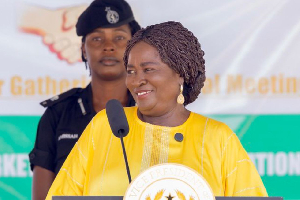South Africa's planned coronavirus vaccination campaign will be launched with the Johnson and Johnson vaccine, instead of the AstraZeneca/Oxford vaccine whose effectiveness is currently being questioned. South African Health Minister Zweli Mkhize announced this Wednesday.
On Sunday, South African authorities had suspended the start of an ambitious vaccination program, which was to take place in the coming days with one million AstraZeneca/Oxford vaccines, after a study showed "limited" efficacy against the local variant of the virus, known as 501Y.V2.
According to the initial results of this study, the vaccine is only 22 percent effective against moderate forms of the South African variant. No results are yet available on its efficacy against severe forms.
"Given the results of the efficacy studies, (the government) will continue the planned first phase of vaccination using Johnson & Johnson vaccines instead of AstraZeneca vaccine," Zweli Mkhize announced to the press, but did not specify a date for the launch of the campaign.
"The efficacy of the Johnson & Johnson vaccine against the 501Y.V2 variant has been proven," he said.
Currently, South Africa, the African country hardest hit by the coronavirus, has ordered nine million doses of Johnson & Johnson vaccine, with the first small shipment expected next week.
The first shipment is likely to be used as "research stock", the minister said.
South African pharmaceutical company Aspen, the licensed manufacturer of the Johnson & Johnson vaccine, "is very committed to accelerating production in South Africa," Zweli Mkhize added, saying the first doses would be available in April.
South Africa is being hit by a second wave of coronavirus, largely caused by a local variant known to be much more contagious than the original virus.
Since the beginning of the pandemic, the country has recorded nearly 1.5 million cases of infection and more than 46,800 deaths due to the coronavirus.
Africa News of Wednesday, 10 February 2021
Source: africanews.com













